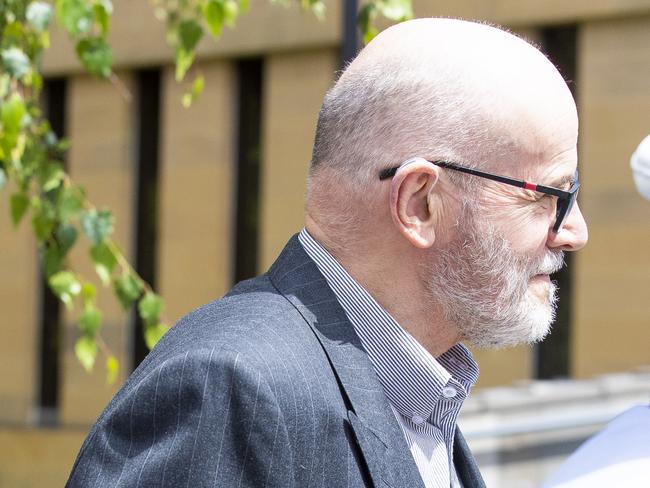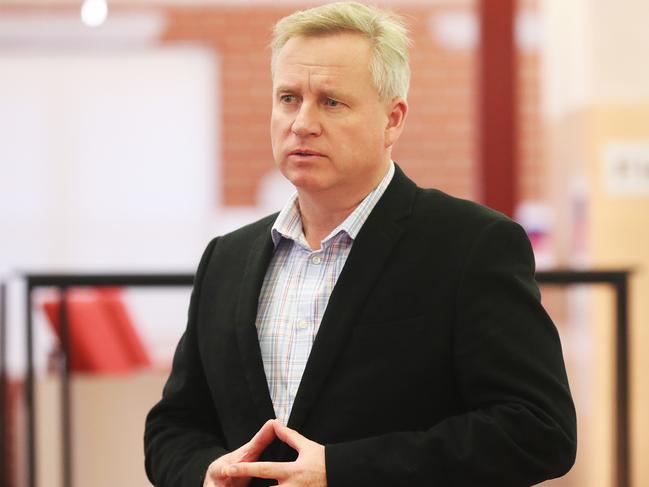Education Minister Jeremy Rockliff says he ‘open’ to an inquiry into paedophile teachers
In the face of mounting pressure for an inquiry, the Education Minister says he recognises the importance of bringing closure to the victims of Tasmania’s paedophile teachers.
Police & Courts
Don't miss out on the headlines from Police & Courts. Followed categories will be added to My News.
VICTIMS of Tasmania’s paedophile teachers have inched closer to finally getting an explanation into the government’s apparent failure to keep them safe at school.
Education Minister Jeremy Rockliff, in response to mounting pressure for an inquiry into why alleged paedophiles were moved between state schools from the 1970s and 1990s, announced on Wednesday the Government was “canvassing all options”.
“As Minister for Education, of course I would be open to exploring other avenues that would ensure justice and closure,” he said.
“We recognise that it’s important for people that justice is done, that victims are heard and listened to, and we will be canvassing all options available to ensure that people are heard.”

He said the state government - which continued to employ at least two teachers throughout years of scandal and child sex complaints - was committed to “work with and support our victims”.
“We apologise for the wrongs of the past. Former premier Hodgman has apologised and we agree with the national apology and we want to support our victims, we have very strong procedures in place now across government,” he said.
Mr Rockliff’s comments come following months of guarded response from Tasmania’s education department after the Mercury revealed details from damning historical documents concerning the state’s management of now convicted paedophiles Darrel George Harington and Anthony Alan LeClerc.
But he also refuted claims by Greens leader Cassy O’Connor this week that the education department had “never fully explained its historical wrongs” and that its apparent failures weren’t fully investigated by the now-finalised royal commission into institutional child sex abuse.

The minister said many Tasmanian child sex abuse survivors shared their stories at the royal commission.
He claimed the education department was implementing the royal commission’s 409 recommendations and also responded “quickly” to requests for information from lawyers acting for survivors.
Sebastian Buscemi, a lawyer preparing civil claims against the education department for 10 survivors historically molested by its teachers, responded cautiously to Mr Rockliff’s apparent willingness for an open investigation.
He said that while many Tasmanians gave evidence at the royal commission, there was no case study examining the education department.
“A lot of survivors felt let down by that, and unlike survivors of other institutions haven’t had any answers either,” he said.
“While it is encouraging that Mr Rockliff is committed to justice and closure, pointing to the findings of the royal commission isn’t a great start. The biggest lesson from the royal commission was that you cannot learn from the mistakes of the past without knowing what those mistakes were. You can’t apologise for the wrongs of the past if you don’t know what those wrongs were.”


